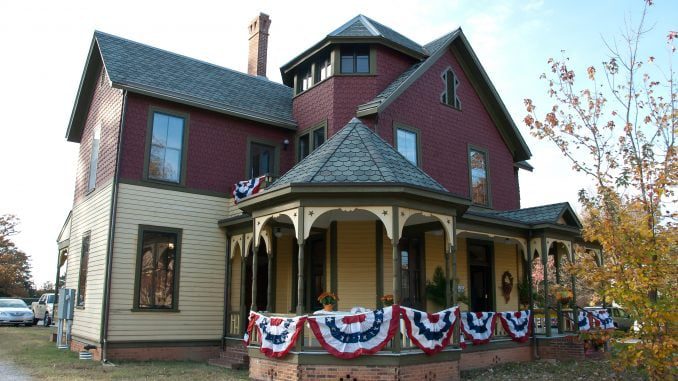
RALEIGH — The legacy of an early agricultural leader is sparking a new conversation about farming and food through a foundation in his name. The Polk House Foundation, named for leader, editor, and first N.C. Commissioner of Agriculture Leonidas L. Polk, is partnering with N.C. celebrity chef Vivian Howard and Central Carolina Community College in Sanford to highlight the farm-to-table culinary arts program at the community college and engage N.C. people on topics related to agriculture and food supply.
The Polk House Foundation is continuing the crusade of Polk to build awareness for the agriculture industry and the plight of farmers with a celebratory event on April 19 at the Contemporary Art Museum in Raleigh. The event, which will be held at the art museum, will offer an educational experience for culinary students from CCCC and a broad, palate-pleasing taste of N.C. for guests, including Howard. Each food station hosted by the culinary students will include North Carolina sourced agricultural products.

The Polk House Foundation operates a museum on Blount Street in Raleigh in the former home of Leonidas Polk who is a distant relative of Pineville, NC born President James K. Polk. Leonidas Polk was born in 1837 in Anson County and had a lengthy and varied career. A graduate of Davidson College, Polk was elected to the N.C. House as a Whig Unionist in 1860 and eventually attained his later moniker of “Colonel Polk” in the state militia. After the war, Polk founded the town of Polkton where he started a weekly newspaper called The Ansonian.
In 1877, Polk was appointed the first North Carolina Commissioner of Agriculture and served until 1880. An agricultural collection he established as Commissioner was the basis for what became the North Carolina Museum of Natural Sciences.
Polk took his journalism and focus on agricultural issues to a new level when he founded “The Progressive Farmer” in 1886. According documents from N.C. State University, Polk also became a leading advocate, along with members of the elite Watauga Club in Raleigh, for the creation of N.C. State University. He was one of the first inductees into the N.C. Agricultural Hall of Fame.
While Polk was a strong advocate for the interests of farmers, the Polk House Foundation is seizing on the importance of N.C.’s largest industry to modernize and expand the areas where agriculture is simply culture. Polk once said, “Our farmers buy everything to raise cotton, and raise cotton to buy everything, and, after going through this treadmill business for years, they lie down and die and leave their families penniless.” But, his namesake foundation is pushing more sustainable way of life for small farmers who can combine forces with luxe cuisine and the travel economy through the farm-to-table movement.
No chef in N.C. has done more to create awareness for the tie between high-end cuisine and N.C. agriculture than Kinston chef extraordinaire Vivian Howard. Howard, of Deep Run, was born into a family of tobacco and hog farmers. After experiencing the culinary scene in New York — and learning both the technical skills and the marketing savvy that drives successful restaurants — Howard started her down east restaurant Chef & the Farmer and also took N.C. food to a new level with her Peabody and Emmy-winning TV show “A Chef’s Life.” Howard will be one of the co-hosts of the Polk House event on April 19. Joining Howard as co-hosts of the event are N.C. Agriculture Commissioner Steve Troxler, N.C. Farm Bureau President Larry Wooten and the Dean of the NCSU College of Agriculture Rich Linton.
Central Carolina Community College is also tapping into the movement that puts chefs and consumers in closer contact to the growers of our food supply, much of which is grown here in the Old North State. CCCC hosts a nationally recognized culinary arts program lead by Chef Gregg Hamm. The college promotes its culinary arts program as a pathway to jobs in a variety of food service settings including full service restaurants, hotels, resorts, clubs, catering operations, contract food service, and health facilities with a sustainable and farm to table focus.
The marriage of the Polk House Foundation, Vivian Howard, and Central Carolina Community College unites the past, present, and future of N.C. food and agriculture. Event organizer Joyce Kohn says attendees should not expect lard-laden fried chicken. Rather, Kohn said, “this culinary experience will focus on simple techniques and ingredient substitutions, which makes food healthier.” In speaking to the broader goal of hosting the event, Kohn said, “our goal for the celebration is to garner much needed funding for the Historic Polk House’s projects beyond minimal maintenance and upkeep costs.”



